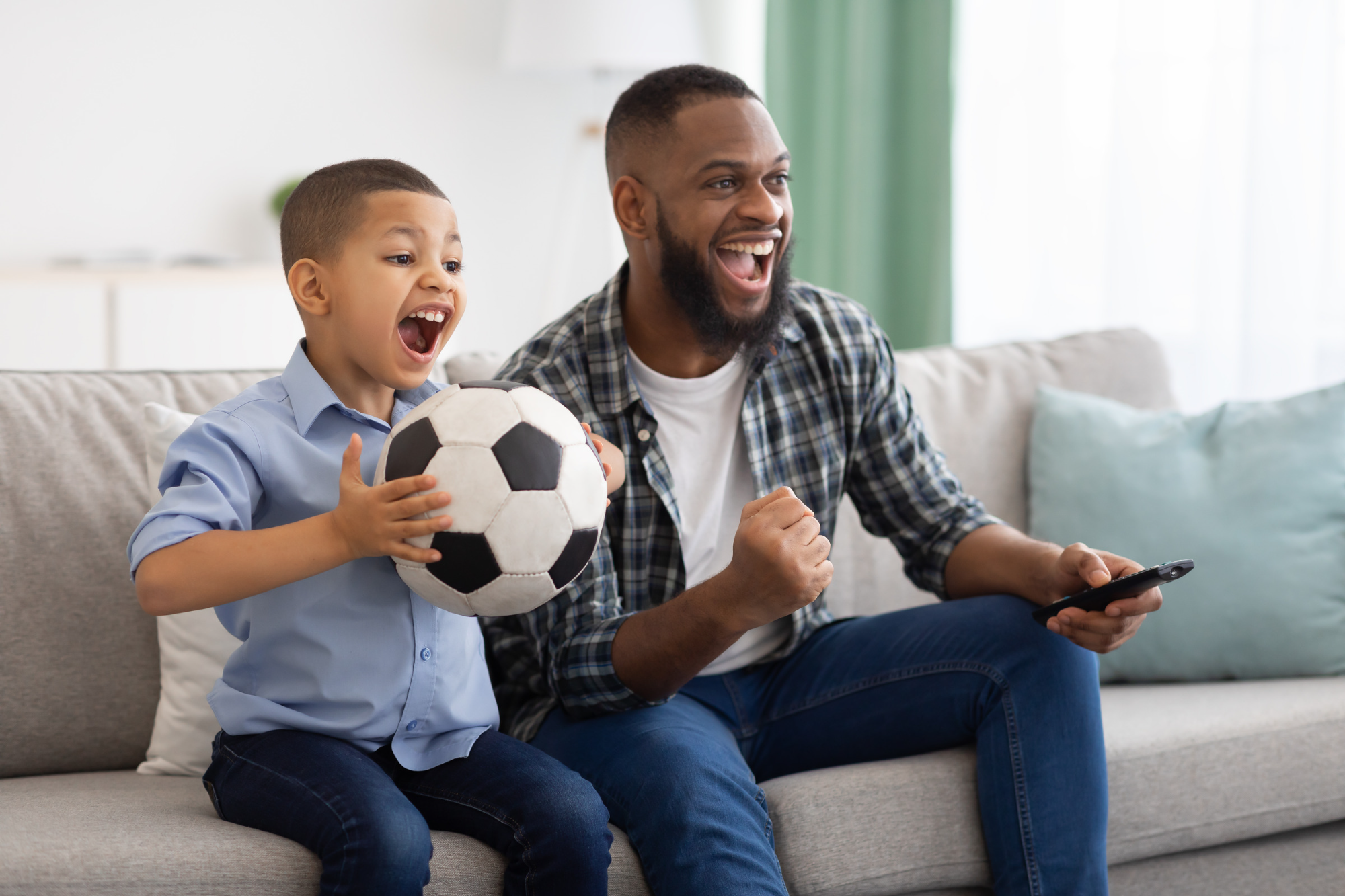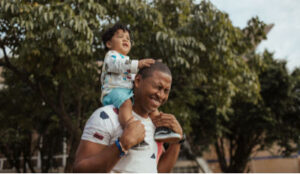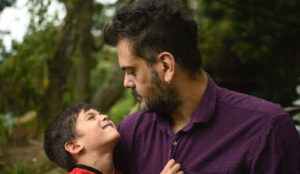
3 Priceless (Yet Practical!) Tips For Co-Parenting After Divorce
Here’s some parenting advice for whatever stage of separation or divorce you’re in.
Raising kids is a huge job made even trickier when dealing with separation and divorce. Although there are no easy answers, here is my best parenting advice for rising to the challenge. This may seem like an odd question, but how many times have you heard a flight attendant say the following?
“In case there is a loss in cabin pressure, yellow oxygen masks will deploy from the ceiling compartment located above you. To secure, pull the mask towards you, secure the elastic strap to your head, and fasten it so it covers your mouth and nose. Breathe normally. Even if the bag does not inflate, please keep in mind that oxygen is flowing. Please make sure to secure your own mask before assisting others.”
You hear it every single time you fly. No exceptions.
I think that getting divorced and a sudden loss of cabin pressure during flight have a lot in common. They’re both scary and you need to take care of yourself first. Unless you’re able to think clearly and take action when it’s needed, you won’t do anyone else any good. And, believe it or not, taking care of yourself is always my first piece of parenting advice for someone going through separation or divorce. No exceptions.
Just in case you might not agree that taking care of you is mandatory for being able to take care of your kids, let’s be frank about the realities of being a single parent. Regardless of the stage of your separation or divorce, when you are a single parent, parenting has an entirely different intensity to it. When your kids are with you, you get to assume the immediate roles of both mom and dad. You’re now 100% responsible for your kids’ education, entertainment, well-being and discipline. There’s no passing off issues to your spouse with a casual “Ask your Mom” or “Ask your Dad.” You’re it—all the time—24/7.
Another reality of being a single parent is the need to get really comfortable with the idea that you’ll have less control over the kids when they’re with their other parent. Yup, that means that if their other parent decides to feed them more junk food than you’d like or let them watch movies you don’t approve of or even introduce a new sweetie to the kids there might be little you can do about it.
More reality: It’s unlikely that your ex will suddenly change their parenting style or capabilities. A client of mine is a great parent and was the one the kids always went to for help and support before the separation and divorce. Now that the divorce is final, my client is still the one the kids go to, but now she’s frustrated by her ex’s lack of parenting skills. She’s admitted there was a part of her that was secretly hoping their father would suddenly become a great parent. Intellectually, she gets that he’s not going to change. We’ve been working on her unrealistic expectations and she’s making great strides in letting her secret hope go. Every step she takes toward fully accepting that the divorce won’t make him a better parent, she reclaims more energy to channel into being a better parent herself and to move even faster past the pain of her divorce and into her new life.
Being a single parent can be a big change from the parenting you did with your ex. Put this added responsibility on top of all the changes you’re going through with just the divorce and I hope you’re now in agreement with me when I give you my first piece of parenting advice: Take care of you first. No exceptions.
My second piece of parenting advice is that you need to establish an effective co-parenting base. To do this, you and your ex need to create a workable co-parenting agreement that puts the needs and welfare of the kids first.
If you’re one of the lucky ones you and your ex were great parents. It was just your relationship that didn’t work out. What I see for my clients in this situation is that they can often have an easier time co-parenting than others. However, if your divorce is contentious, then it may change a great parenting partnership into using the kids as weapons during the divorce proceedings and beyond.
If your parenting relationship with your kids’ other parent isn’t ideal, here is some parenting advice to get a more effective co-parenting base in place.
As part of your divorce agreement, you’ll most likely create a parenting plan. Ideally, you and your ex will both approach the parenting plan from what’s best for the kids and not what’s best for you. Raising happy, healthy kids that can be happy, healthy, contributing adults is the goal of every parent I know—including me. If you’re able to keep this goal in mind as you work with your ex and the attorneys to develop your parenting plan, you’ll be taking a huge step toward helping your kids’ become happy, healthy, contributing adults.
The other main piece of a solid base for co-parenting is establishing workable communication rules. Even in the midst of the worst, most contentious divorce, if you establish communication rules for co-parenting you’ll be effective co-parents. For instance, you might choose to text for everyday communications about the kids because talking on the phone just isn’t working right now. You might save phone calls for emergency situations and have a special code word you use when you do call to indicate that it is an emergency.
My third piece of parenting advice works best if the first two pieces are in place. My suggestion is that you keep in mind that the divorce is happening to the kids too. They need your support and compassion without using the divorce as an excuse for poor behavior on either their part or yours.
For most kids, it’s important that you and your ex tell them together about your separation and divorce before it happens. Your kids will have questions and fears that you’ll both want to deal with as honestly and openly as is appropriate. You’ll both want to assure them that they’re still loved. It’s O.K. to let them see you cry and that you’re sad about the situation too. By letting them see your emotions you give them more freedom to express their sadness and fear about how their life will be changing too.
Kids go through grief and need to recover from divorce, too. In fact, your kids might need a support team to help them get through all the changes. You’ll want to let their teachers and school know what’s going on. You’ll probably also want to let their coaches, tutors, and anyone else who sees the kids regularly know what’s going on. That way you can help provide direction on how you’d like for them to support your kids as they go through this major transition. It’s also fairly common for parents to seek out a divorce support group for children or even a therapist to help their children process all that’s happening.
When your kids travel between your home and their other parent’s home, there’s a big transition that they go through. In most cases, each home has their own rules, different sets of toys, different clothes, different responsibilities and different relationships with each parent. It’s hard for kids to immediately shift from one home to the other. Being compassionate, patient, and firm will go a long way toward helping make the transitions a bit easier.
Despite everything that’s going on with the divorce, your kids still need to have set routines and structure that teach responsibility. Obviously, make these routines and structure age and developmental stage appropriate. A mistake that I see many parents make is having the children take on the chores and household responsibilities of their ex. All this does is makes your children even more resentful of the divorce, you and your ex.
Unfortunately, many divorcing parents will naturally skip over my first two pieces of advice and only focus on their kids. This can be a recipe for disaster.
If a parent doesn’t take care of themselves first and get the support they need to work through their divorce, it’s very easy for them to use their children as substitutes for adult friends and confidantes. I know of one man who made this mistake with his daughter. At the time, his daughter felt wonderful about the close relationship she had with her dad. But after a while she became stressed out from taking care of him. She made a poor decision and turned to drugs to help her cope. Of course she didn’t know that at the time, but after years of therapy, she was able to recognize what had happened and re-establish a relationship with her dad.
If parents don’t take the time to establish an effective co-parenting base, the kids can have an extreme reaction to leaving one home for the other. I know of one case where a little boy began having hysterics every time it was time for him to switch homes. Each of his parents would regularly grill him about what was going on in the other’s home. They were also only able to allow their son to go from one home to another by parking in a public place like a McDonald’s. They’d load him up with everything he needed to take with him and let him walk alone across the parking lot to his other parent’s car. Is it any wonder this little boy got upset when it was time to switch homes?
I hope you’ll put all three of these pieces of parenting advice into practice because taken together they can help you more easily achieve your goal of raising happy, healthy kids that grow up into happy, healthy, contributing adults despite the fact that you’re going through separation and divorce.
Your Functional Divorce Assignment:
What do you need to do to take better care of yourself as you’re going through separation and divorce? Many people don’t realize how helpful it can be to have a support team help you get through your divorce. You might want to read “Finding the Right Divorce Experts for You” to give you some ideas of the help that’s out there.
How can you create a more effective co-parenting base? Is your parenting plan based on your needs or your kids’ needs? Have you established workable communication rules? If not, now’s the time to make some changes.
How can you be a more supportive and compassionate parent while not using the divorce as an excuse? Do each of your children have appropriate chores and responsibilities? Are you spending quality 1:1 time with each of your children?
I’m Dr. Karen Finn, a divorce coach and advisor helping people just like you who are dealing with the stress and pain of divorce. You can join my newsletter list for free weekly advice. If you’re interested in taking the first step toward working with me, you can schedule an introductory private coaching session.
This article originally appeared on YourTango.
Related Posts:
Co-Parenting Basics For Divorced Parents
Co-parenting for divorced parents is really tough. However, when you understand & use these basics, you’ll be better able to raise amazing kids with your ex.
Read MoreWhy Co-Parenting A Teenager Is So Hard
Co-parenting sucks, but co-parenting a teenager can be even worse. Make it easier on yourself by learning the top 6 co-parenting mistakes so you can avoid them.
Read More13 Reasons Why Co-Parenting Doesn’t Work For Everyone
Here are some really important reasons why co-parenting doesn’t work for some couples. It’s OK if it doesn’t work for you. Your kids can still turn out great.
Read More


